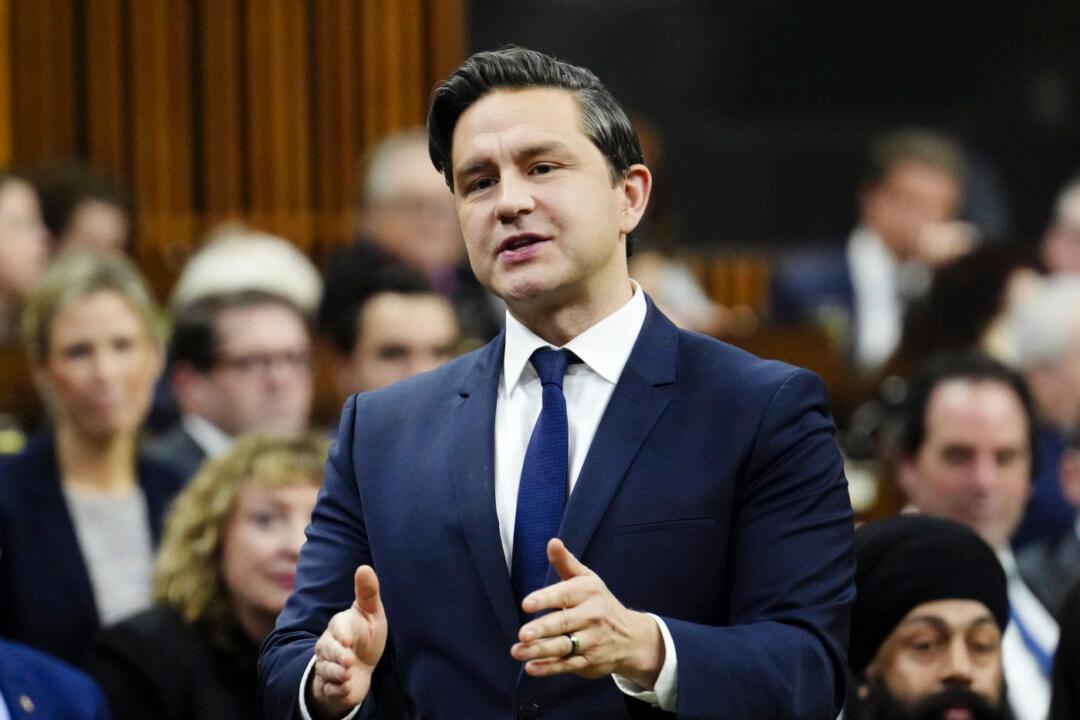A Conservative government under leader Pierre Poilievre would expose parliamentarians who have been knowingly colluding with foreign states, his office says.
Spokesperson Sebastian Skamski told The Epoch Times in a statement that if elected, Poilievre would have the names released “for those who are deemed to have knowingly participated in foreign interference.”





